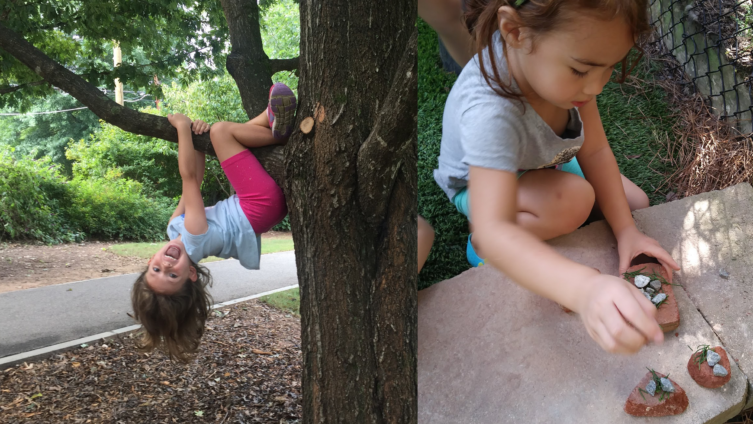
Outdoor education provides students with hands-on learning opportunities about topics they’re already covering in the classroom including conservation, ecology, and more. At The Children’s School, students in third grade and up go on overnight camping trips each year, however, the foundation for the skills necessary for these trips is built early on. Kindergarten teacher Rachel explains how outdoor education is introduced and taught to young children by promoting exploration, adventure, and an appreciation for nature.
Q: Can you name some examples of age-appropriate outdoor education field trips or projects the class participates in?
A: We start the year by going to Piedmont Park so we can get comfortable being in nature. Part of this involves learning about respecting nature and the environment that we are visiting. For example, we observe insects and animals that we might come across and talk about how we have to respect their space and not disrupt them. Even though they might not like crawling insects, we can’t hurt them or move them out of their environment because when we’re out in nature we are in their home. We also usually visit the Fernbank Museum, which has a great outdoor exploratory area where the kids can climb up high and experience the environment from a different perspective. They also get to view native plants and learn how to spot them in other places they might visit. It’s so exciting for kids to learn the real scientific names of trees and plants. They love impressing their families and friends with that information.
Q: What are some key skills students learn from these outdoor experiences and how do they connect to the academics they’re already learning?
A: The state park hiking trail we go on each year introduces them to different scenery that isn’t as close to “home.” We talk about “leaving no trace” and since we learn about recycling and protecting our earth, we even bring garbage bags with us to collect trash that we find on the trail. We talk about the importance of staying on the marked trails so we don’t disturb the wildlife. We teach them to use different senses by asking “what do we smell, hear, touch, etc?” to observe the environment.
Q: How do these experiences begin setting the foundation for children for later camping trips?
A: These experiences show children how to respect these different environments and to be mindful of human impact in these spaces. Being in nature is proven to reduce stress and anxiety and improve concentration. It can teach kids to slow down and notice details they might not otherwise see. Our kids can be easily engaged in the park without having any toys with them. Instead, their toys become trees, leaves, rocks, and more.









